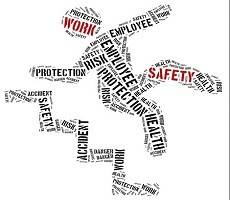February 13, 2015
New report highlights the borderless and liquid nature of the diverse workplace
 Predicting the office the future is not an exact science, but sometimes a report comes along which does a decent job of cutting through the fog and pointing us in the right direction. The Kinnarps’ Trend Report 2015, published this week by the firm’s future labs workshops, draws out some important themes for the new diverse workplace; the borderless and liquid nature of modern working life, how co-working clusters are now a mature trend, why designers need to consider the introvert as well as the collaborative extrovert worker; wellness as the new sustainability and the fact that people will and should be allowed, to modify the environment in which they work. Five key trends were identified in the report, the impact these have on working life are examined and suggestions made on how designers can apply them in their workplace design strategies.
Predicting the office the future is not an exact science, but sometimes a report comes along which does a decent job of cutting through the fog and pointing us in the right direction. The Kinnarps’ Trend Report 2015, published this week by the firm’s future labs workshops, draws out some important themes for the new diverse workplace; the borderless and liquid nature of modern working life, how co-working clusters are now a mature trend, why designers need to consider the introvert as well as the collaborative extrovert worker; wellness as the new sustainability and the fact that people will and should be allowed, to modify the environment in which they work. Five key trends were identified in the report, the impact these have on working life are examined and suggestions made on how designers can apply them in their workplace design strategies.




























February 2, 2015
Staff calling in sick could be a symptom of management malaise
by Sara Bean • Comment, News, Wellbeing, Workplace
If your office seems strangely quiet this morning it might be due to the fact today is ‘national sickie day’. The first Monday in February is the day of the year which traditionally sees the highest number of workers calling in sick. It’s been argued that many of these people could in fact be looking for a new job, but whether your staff are sick or on a job interview, these absences may be indicative of a deeper problem, and it in all probability lies with the quality of their managers. According to recent research, one in seven people (16%) have had to take sick leave due to a bad manager and a fifth of people would turn down a job offer if their new manager had a bad reputation. The research also found that those who find themselves being poorly managed are more likely to take radical action and leave a job than tackle the issue with their HR department.
(more…)